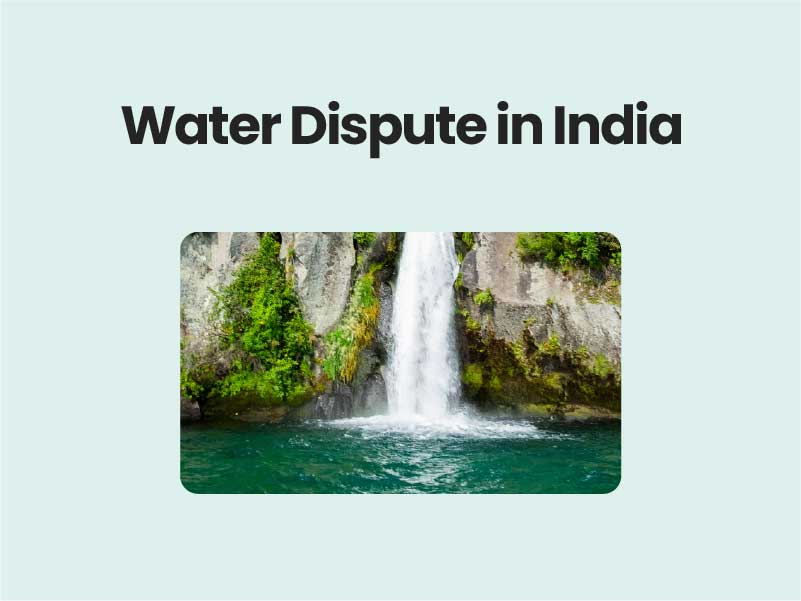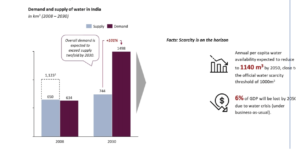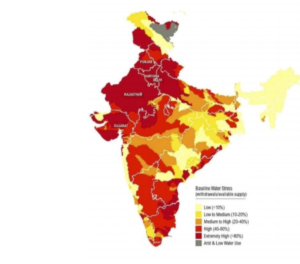Companion@360 → 7 Month programme to sharpen your writing skills → REGISTER NOW

Water Dispute in India
The Interstate River Water Disputes Amendment Bill 2019 seeks to improve the inter-state water disputes resolution by setting up a permanent tribunal supported by a deliberative mechanism the dispute resolution committee. The Dam Safety Bill 2019 aims to deal with the risks of India’s ageing dams, with the help of a comprehensive federal institutional framework comprising committees and authorities for dam safety at national and state levels. There is less significant body of analyses about state of water governance in India and our unique challenges and opportunities.
Water Dispute in India Challenges:
- Groundwater Governance
- Environment Management Challenges
- Water Pollution
- Equity and Distribution
- Corruption
- Food Production
- Water Supply and Sanitation
Elements of water governance:
- Democratic elements: In the process including transparency, accountability, decisive participation of the people on ground.
- Institutional Mechanism
- Constitutional provisions
- Legal Framework:
- Planning and decision making processes
Needs:
- A NITI Aayog report held that 21 major cities are expected to run out of groundwater as soon as 2020 which may affect nearly 100 million people.
- Water crisis
- Greater centre-states coordination is also crucial for pursuing the current national projects like Ganga river rejuvenation or inland navigation or inter-basin transfers.
Read Also Nirbhaya Act
Government Innitiatives:
- Jal Jeevan Mission (JJM)
- Ganga river rejuvenation
- Swatch Bharat Abhiyaan
Way Forward :
- New technologies like GIS and Remote sensing together with Water resources domain skills has proven its application in successful mapping, evaluation and management strategizing of the asset. This includes all varied sources data collection, standardization, and storage of the entire gamete of information on a nationalized scale
- Implementing Mihir Shah Committee Recommendations
- Multi-Stakeholder Approach


